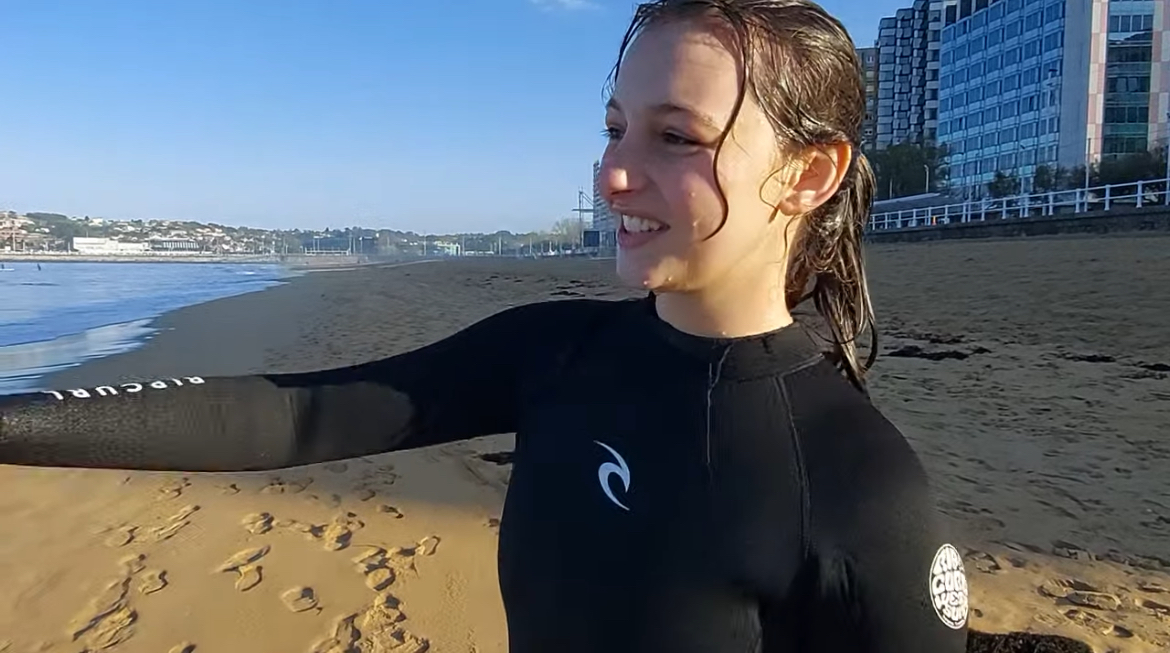With a rigorous academic load, it can be difficult for engineering students to prioritize some of the enriching experiences that Temple and the College of Engineering have to offer, especially studying abroad. However, with preparation and guidance, engineering students can take advantage of all that studying abroad has to offer while staying on track to graduate.
The College of Engineering interviewed Emma Coughlin, an electrical engineering student, as she shared her experience in Oviedo, Spain and advice on how to stay on track academically while studying abroad.
Every student’s academic and financial aid situation is different. Students interested in studying abroad can reach out to [click-for-email] to schedule an advising appointment and learn more about what the process would look like for them.
College of Engineering (COE): How did you choose where to study abroad?
Emma Coughlin (EC): I chose Spain because I already spoke Spanish, and they offered the courses I needed. It was also a Spanish university as opposed to an American university in Spain, so I really got to experience culture.
COE: What motivated you to study abroad?
EC: I enjoy traveling, and my sister always talked about how much she enjoyed her time at Temple Rome.
COE: How did you work with advising to make this happen?
EC: I spoke to my advisor to ask if there were any opportunities that would fit into my schedule. I was able to go Temple in Spain for a semester or Temple Rome/Japan for a few weeks in the summer. I wanted a longer experience, and my courses lined up. I took extra credits before and after so I could take less classes while there.
COE: How were your tuition, fees and financial aid affected?
EC: Since I live in the dorms, the study abroad fees worked out to be very similar to the cost of the dorm. I was able to use financial aid, and it ended up being a bit less money for me to go to Spain because the study abroad office gave me a scholarship.
COE: What courses did you take while abroad?
EC: Systems and Signals, Power Electronics, Microprocessors, and Eating Cultures, which filled my human behavior gen ed.
COE: How did studying abroad affect your academic plan?
EC: I didn’t want to take too many courses over there, so I had to take some extra credits in the spring and summer, but I could have taken more technical electives while I was there if I didn’t want to take extra credits elsewhere.
COE: How did studying abroad affect your extracurricular activities?
EC: I was on the Eboard of IEEE before I left and took a step back when I went to Spain.
COE: What was your favorite part of your experience abroad?
EC: I made a lot of friends from all over Europe that I still talk to. I’ve learned a lot about language and culture.
COE: How do you feel that studying abroad helped with your engineering journey?
EC: I’m better at speaking Spanish now which is always a good skill to have. I also learned a lot about how design is done a bit differently in Europe compared to the US, specifically in the grid. I also learned about how the power markets and trade are different in Spain than they are here.
COE: What advice would you give to students interested in studying abroad?
EC: Temple in Spain was a great program because I got to really experience the culture. The city was also cute and small, which was very different from Temple being in Philadelphia. I would recommend that students take gen eds or minor courses if they go to Spain. Since it is a Spanish university, the courses are run quite differently, and it was a difficult adjustment. Additionally, I had lab courses on Mondays and Fridays so I couldn’t travel outside of Spain which I wanted to do more of. While I wish I had gotten to go to more countries, it forced me to travel to places in Spain that I wouldn’t have gone to otherwise and those places were very cool.

